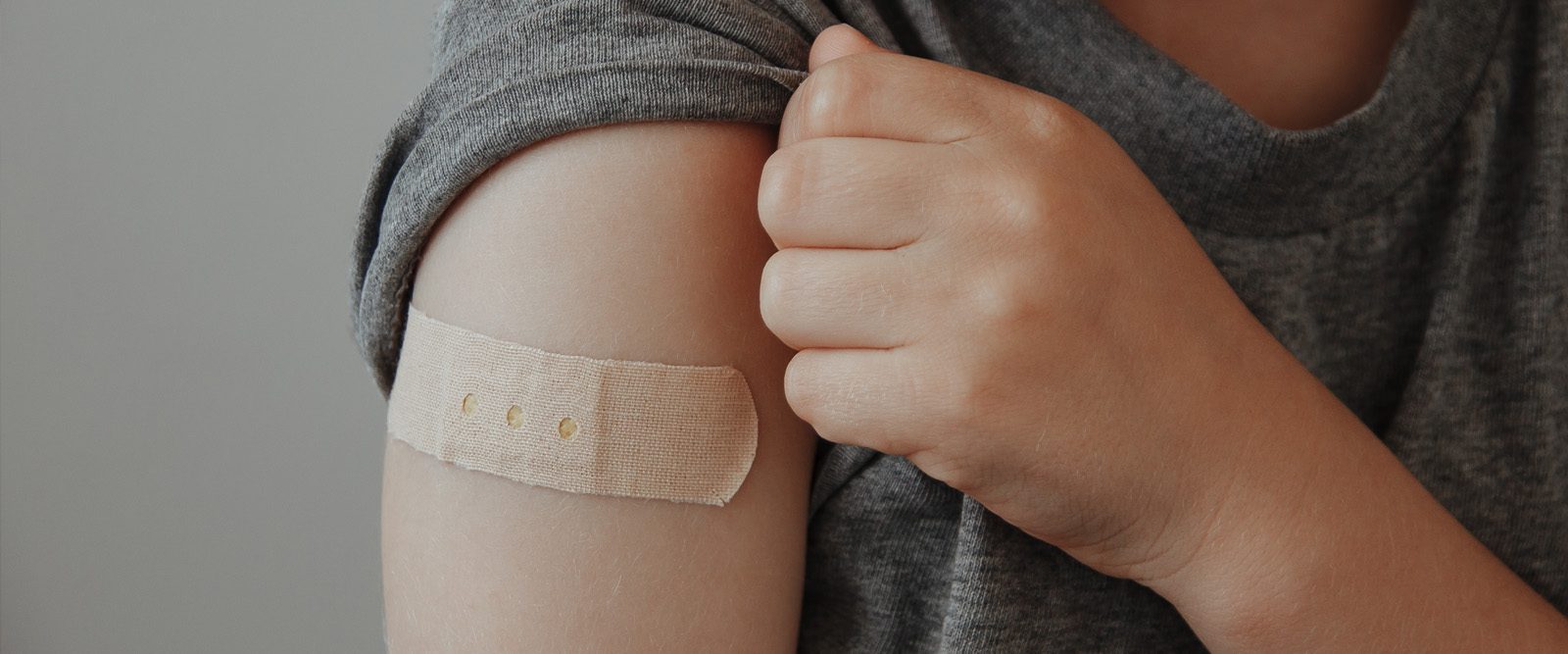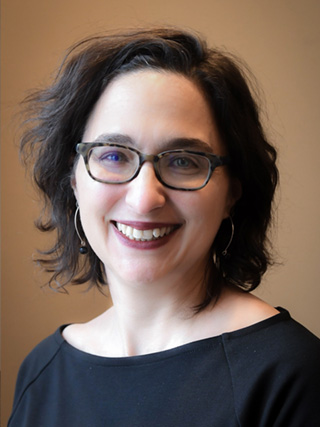Childhood Vaccines: What Immunizations Are Recommended and At What Age?
An expert answers frequently asked questions about vaccine safety and why it’s important to follow the recommended immunization schedule.

One of the most important ways parents can protect a child’s health is with vaccination. Vaccines are safe and help the body’s immune system learn how to fight germs. But childhood vaccination rates are continuing to decline.
“Vaccines are life-saving, well-studied and have been in use for a long time to prevent diseases,” says Dr. Melissa Stockwell, a pediatrician at NewYork-Presbyterian Morgan Stanley Children’s Hospital of Children’s Hospital of New York and medical director of the NewYork-Presbyterian Immunization Registry (EzVac). “They are an important tool in your toolbox to protect your children.”

Dr. Melissa Stockwell
Every year, the CDC, American Academy of Pediatrics (AAP), and other leading health care organizations publish a recommended immunization schedule for children ages 18 or younger after a rigorous review of scientific data.
Health Matters spoke with Dr. Stockwell to answer questions about childhood vaccine safety, which vaccines children need and when they need them.
Are vaccines safe?
Dr. Stockwell: Absolutely. Today’s vaccines go through many years of rigorous testing before they are ever given to humans. This is all done to ensure they are safe, effective and include only the necessary ingredients. Like any medication, side effects can occur, but it is safer to be vaccinated than to get the disease.
When do vaccines typically start for children?
Vaccines start at birth and continue with a regular cadence of immunizations throughout childhood and adolescence.
The bulk of childhood vaccinations are given before a child turns 1 year old. Is it safe to give a young infant so many shots?
The number of shots a baby needs in their first year of life might seem overwhelming, but according to decades of scientific data, it’s completely safe to give many shots at one time. In fact, that is how these vaccines were studied. A baby’s immune system is more resilient than you might think. The ingredients in vaccines — for instance, inactivated strains of the virus — come in quantities that are significantly lower than what babies would come into contact with in their everyday environment.
How strictly do parents need to follow the vaccine schedule?
We definitely recommend that people follow the AAP vaccine schedule as closely as possible because it protects children and adolescents against diseases that are still out there. There is a lot of thought put into the right timing of the vaccine schedule and is based on what experts think is the best way to get kids protected.
What is the difference between the CDC and AAP vaccine schedule?
The AAP schedule recommends all children be vaccinated against 17 diseases, including measles, mumps and rubella, polio, chickenpox, HPV, whooping cough, and others.
The CDC recently narrowed its vaccine recommendations for 11 of those 17 diseases. Now vaccinations against six diseases — including respiratory syncytial virus (RSV), hepatitis A, hepatitis B, meningococcal disease, rotavirus, influenza and COVID-19 — are recommended only for children who are at high risk of infection or after a consultation with a health care provider.
You and your child’s doctor both want to keep your child healthy and thriving. Your child’s doctor is ready and able and has the training and knowledge to answer any questions you have- use them as your trusted source.
Why is hepatitis B recommended at birth? How safe is the vaccine?
Babies can contract hepatitis B either through the birth process or by being in contact with the bodily fluid of an infectious person, even from something as tiny as a cut. It is particularly important to protect newborns from hepatitis B because if they contract the virus they are much more likely than an older child or adult to develop a serious liver disease, including cirrhosis and liver cancer.
Before we had universal hepatitis B vaccination, about 18,000 infants and children were infected every year, and about 90% of those infected developed a chronic infection.
The vaccine has been extensively studied and used for decades. It is safe and cannot cause hepatitis B since it does not contain any infectious components of the virus.
Should I have my baby vaccinated for measles?
Yes, absolutely. The U.S. has experienced its highest number of measles cases in over 30 years and is poised to lose its measles elimination status.
We want to protect children against measles because it can be a severe disease. Overall, 1 in 5 (20%) of unvaccinated people in the U.S. who get measles will end up hospitalized; the risk is higher for children who are less than 5 years old. In more serious cases, children with measles can develop pneumonia or brain swelling which can lead to deafness and cognitive issues. Sadly, between 1 and 3 out of every 1,000 children who get measles will die, even if they receive the best medical care.
The good news is that the measles vaccine is safe and very effective, providing 97% long-lasting protection if the two dose series is completed. It is also important to note that numerous studies have shown no association between the measles vaccine and autism.
What are the possible side effects of vaccines?
Common side effects include some mild swelling or redness where the shot was given, fussiness in infants, a low-grade fever, headache, and sleepiness. These are nothing to worry about. It means that the vaccine is working.
If, on the other hand, your child has a more severe reaction, such as a full body rash, difficulty breathing, or swelling of the face and throat, contact their doctor immediately.
Are children required to get vaccinated before starting school?
All states follow mandatory vaccination guidelines for children going to child care facilities (including day cares) and schools. This is to keep every child safe and protected from preventable diseases. Check the school’s health forms to know which vaccines your child needs in order to attend.
What do parents need to know about the RSV antibody shot?
The new RSV antibody injection, named nirsevimab, provides infants and toddlers with antibodies to protect against severe RSV (respiratory syncytial virus) illness. The AAP recommends one dose for all infants younger than 8 months, who were either born during or entering their first RSV season. That’s when a baby is most at risk for severe illness. For a small group of children between the ages of 8 and 19 months who are at increased risk of severe RSV disease, a dose is recommended in their second RSV season.
The ideal timing is in the first week of life for infants born shortly before and during the season, and shortly before the start of the RSV season for infants less than 8 months old and those 8 to 19 months who are at increased risk of severe RSV disease. However, if an infant was not immunized in their first week of life it is still worth their getting the shot.
Nirsevimab is safe and effective. In studies, it reduced the risk of medically-attended illness (meaning when children have to visit a physician office, urgent care, or emergency room, or need hospitalization) for RSV in infants by about 70 to 75%. Nearly every child will get an RSV infection by the time they are 2 years old. While much of the time RSV can be a mild, cold-like illness, it can also cause severe illness which is what we are trying to protect children from. Nirsevimab is available only from October through March.
Why do some childhood vaccines need booster shots while others don’t?
There are some vaccines — for instance, the measles vaccine — where only one or two doses are needed, and then you don’t need it again for the rest of your life. But there are others, like the flu and COVID-19 vaccines, where the virus changes just enough so that last year’s vaccine isn’t protective against this year’s variant. Those need to be given more frequently because we need to keep training the body to continue fighting off the virus.
Melissa S. Stockwell, M.D. M.P.H, is chief of the Division of Child and Adolescent Health and the Felice K. Shea professor of Pediatrics at Columbia University Vagelos College of Physicians and Surgeons and professor of Population and Family Health at the Mailman School of Public Health. Her research, which concentrates on underserved children and adolescents, focuses on translational interventions to improve vaccinations with an emphasis on health technology and health literacy. Dr. Stockwell is the medical director of the NewYork-Presbyterian Immunization Registry (EzVac) and director of the Columbia University Primary Care Clinician Research Fellowship in Community Health. Additionally, she is a pediatrician at NewYork-Presbyterian Morgan Stanley Children’s Hospital and a NewYork-Presbyterian-affiliated community clinic. She also serves on the New York City Department of Health and Mental Hygiene’s Immunization Improvement Team.
